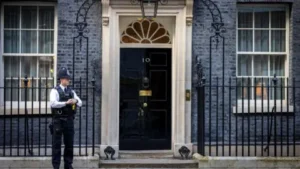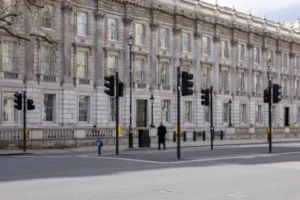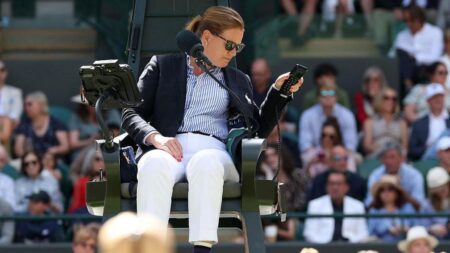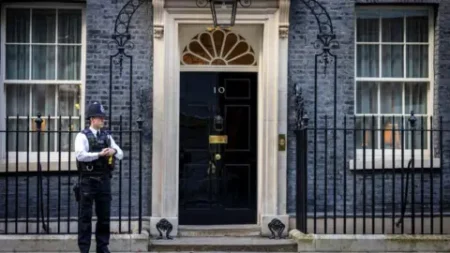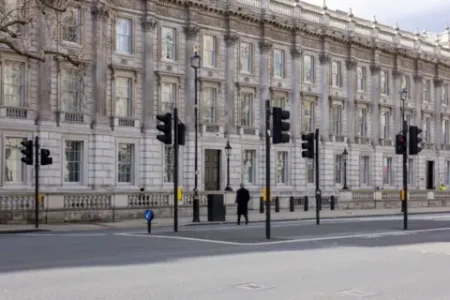The tragic event that unfolded in Southport on July 29, 2024, is being described as one of the most atrocious crimes in the history of the United Kingdom. This incident is currently the focus of a public inquiry led by a distinguished retired judge, Sir Adrian Fulford, who emphasizes the need for a thorough examination of the circumstances surrounding it. The inquiry is particularly concerned with the actions of the perpetrator, Axel Rudakubana, whose troubling behavior had reportedly been chronicled and ignored by various public bodies leading up to the attack.
Three young girls—nine-year-old Alice Aguiar, seven-year-old Elsie Dot Stancombe, and six-year-old Bebe King—lost their lives in this horrendous act of violence at a dance studio in the seaside town of Southport. In addition to the fatalities, eight other children and two adults sustained serious injuries. The first live sessions of the inquiry commenced in Liverpool Town Hall, attracting attention from legal representatives, media, and the public.
Sir Adrian Fulford has made it clear that the goal of this inquiry goes beyond merely recounting the events of that fateful day. He intends to identify how public agencies dealt with warning signs presented by Rudakubana. The judge expressed a commitment to delivering “sensible and achievable” recommendations to prevent similar tragedies in the future. He highlighted the inconvenience of using language to describe the enormity of Rudakubana’s actions, stating that conventional terms fall far short.
The inquiry, announced by Home Secretary Yvette Cooper, is organized into two distinct stages. The first will delve into the perpetrator’s past, analyzing his interactions with relevant authorities and assessing whether those agencies acted appropriately concerning the perceived risks posed by Rudakubana. There is an essential focus on identifying instances where opportunities to prevent the attack were missed.
The second stage of the inquiry will tackle the broader issues of youth and extreme violence, examining trends that draw young individuals into cycles of aggression and crime. Sir Adrian poignantly urged a moment of silence in remembrance of the young victims, underscoring the emotional weight of the inquiry.
Quoting Prime Minister Sir Keir Starmer, who described the Southport incident as a “line in the sand,” Sir Adrian pointed out that every detail will be scrutinized without reservation. He indicated there are troubling aspects of Rudakubana’s interactions with authorities that need to be laid bare. One notable incident discussed in court involved Rudakubana attacking a fellow student with a hockey stick, despite having previously been excluded from school.
Rudakubana’s profile is deeply concerning; reports revealed that he had been flagged to a counter-extremism program known as Prevent multiple times for his alarming online behavior, which included researching acts of extreme violence and infamous figures. Alarmingly, the inquiry also established that he had been discovered carrying a knife after being reported missing, consistently voicing a desire to inflict harm.
Further disturbing details emerged, indicating Rudakubana had explored ways to carry out attacks, including making purchases for weapons such as machetes and bows. These revelations highlighted significant failures in the system to effectively address threats posed by individuals like Rudakubana, raising questions about the capacity of law enforcement and social services to safeguard vulnerable communities.
Sir Adrian conveyed his concern about the balance between civil liberties and the need for public safety. The inquiry will explore mechanisms such as electronic tagging and online restrictions for individuals flagged as potentially dangerous before any crime occurs. The potential ineffectiveness of current online checks regarding weapon purchases will also be critically examined.
Throughout the inquiry, Sir Adrian has expressed appreciation for the cooperation from witnesses. However, he voiced grave concerns about the emotional impact these proceedings might have on the victims’ families and survivors. He even urged that strict reporting restrictions be followed to protect the identities of the surviving children. Sir Adrian’s sensitive handling of the situation speaks volumes about the emotional ramifications such tragedies inflict on families, communities, and society as a whole.
In conclusion, the ongoing inquiry into the Southport attack is a necessary response to an incident that has left a community—and indeed the nation—grieving. It underlines the importance of examining social pathways that can lead to extreme violence and ensuring that public services effectively protect young lives against the threats posed by individuals like Rudakubana. In a quest for understanding and healing, the inquiry seeks to shine a light on a clearer path to prevention amid the tragedy.


